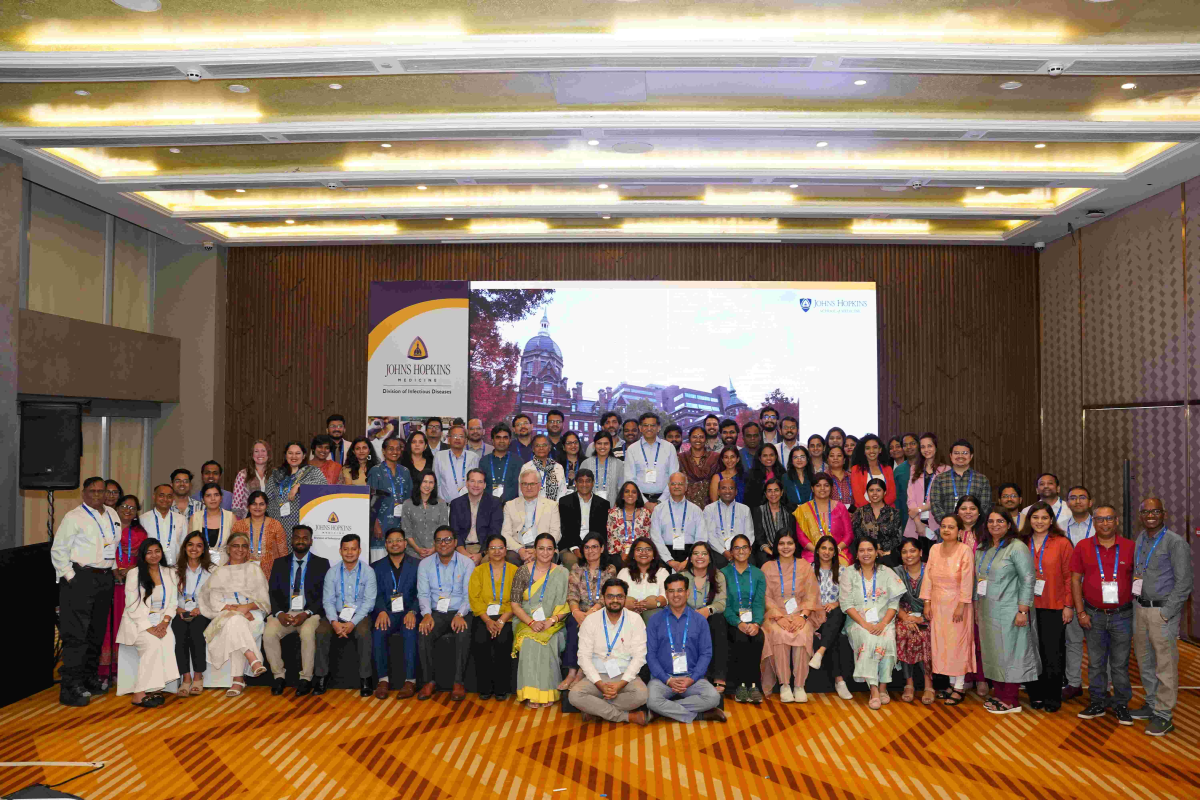
Course Dates: February 28 – March 2, 2025
Location: Chennai, India
Venue:
Taj Club House, Chennai
2, Club House Rd, Express Estate, Royapettah
Chennai, Tamil Nadu 600002, India
Phone: +91 44 6631 3131
REGISTRATION
COURSE FORMAT
This program is a combination of self-paced online modules (13 hours) followed by a 2.5 day in-person session in Chennai, India, convening February 28-March 2, 2025.
Online modules must be completed within 180 days of the date of registration.
WHO SHOULD ATTEND
This foundational course is intended for emergency medicine physicians, family practitioners, internists, public health practitioners, nurses, nurse practitioners, and physician assistants, as well as other health care workers or researchers interested in additional professional development.
DESCRIPTION
Infectious diseases remain a dynamic and fascinating field replete with new challenges facing outpatient primary care providers and hospital medicine practitioners alike. This foundational course is designed to explore major infectious diseases topics of particular relevance to our target audience, which includes outpatient primary care physicians and mid-level providers, emergency department providers, and hospitalists in the US and globally.
Foundations in Clinical Infectious Diseases is designed to provide primary care providers with a thorough understanding of various infectious diseases commonly encountered in primary care settings. Through eight comprehensive online modules and a 2.5 day in-person conference, healthcare professionals will develop the knowledge and skills necessary to effectively address, manage, and prevent infectious diseases, while promoting optimal patient outcomes. The foundational course will cover a range of topics, including HIV, latent tuberculosis, skin and soft tissue infections, community-acquired pneumonia, vaccine updates, antibiotic usage and stewardship, and sexually transmitted infections. Interactive case studies and clinical decision-making exercises will facilitate the application of acquired knowledge in real-world scenarios.
COURSE OBJECTIVES
After attending this foundational course, learners will demonstrate the ability to:
- Name the agents recommended for inclusion in first-line anti-retroviral therapy (ART) to facilitate selection of initial treatment regimens for newly diagnosed patients, and acquire knowledge of usage of ARV decision support tools.
- Acquire proficiency in the screening, diagnosis, and treatment of latent TB infection.
- Comprehend common bacterial skin infections, viral skin infections, fungal skin infections, and parasitic skin infections, including their clinical presentation, etiology, and common pathogens, to effectively diagnose and manage these infections in primary care settings.
- Express comprehensive knowledge of antibiotic resistance, driving factors, and its global impact, to define the problem and appreciate its scope and relevance to primary care settings.
- Acquire proficiency in recognizing the clinical presentation of STIs, including symptoms, physical findings, and the appropriate use of diagnostic tests, to facilitate accurate and timely diagnosis for appropriate management and treatment.
CERTIFICATE
After successfully completing the foundational course, learners will receive a certificate of completion from the Johns Hopkins School of Medicine and the Division of Infectious Disease. While not conveying academic credit, it will document the learner’s competency in the knowledge and skills delivered in the course and successful completion of course requirements.
Course Syllabus
Day 2
8:30 -9:00 am: Photo Quizzes
Maunank Shah, MD, PhD
9:00-9:30 am: Case-based Discussion: Bacterial Pneumonia
Paul Auwaerter, MD, MBA
9:30-10:00 am: Dysentery and Childhood Diarrheal Diseases
Anita Shet, MD, PhD
10:00-10:15 am: Tea & Coffee Break
10:15-10:45 am: New HIV Diagnoses: Screening and Initial Counseling
Manish Banrotiya, MBBS, Technical Director, Project ACCELERATE, Center for Infectious Diseases in India
10:45-11:15 am: Update on NACO/Indian HIV Guidelines: What’s New
Manish Banrotiya, MBBS
11:15 am-12:00 pm: Hepatitis B&C
Ashwin Balagopal, MD, Associate Professor of Infectious Diseases, Johns Hopkins School of Medicine
12:00-1:00 pm: Lunch
1:00-2:00 pm: HIV and Viral Hepatitis Cases
Manish Banrotiya, MBBS
Ashwin Balagopal, MD
Rajeev Soman, MBBS, MD
Amita Gupta, MD, MHS
2:00-2:30 pm: Mpox
Ashwin Balagopal, MD
2:30-3:00 pm: Approach to Undifferentiated Acute Febrile Illness
Dr. George Varghese
3:00-3:15 pm: Tea & Coffee Break
3:15-4:00 pm: Case-based Discussion: Leptospirosis and Typhus
Dr. George Varghese
4:00-4:45 pm: Interesting Infectious Diseases Cases
Rajeev Soman, MBBS, MD
4:45 pm: End of Day 2
Day 3
8:30-9:30 am: Infectious Diseases Case Report
Maunank Shah, MD, PhD
9:30-10:15 am: Tuberculosis Potpourri and Cases
Maunank Shah, MD, PhD
10:15-10:30: Tea & Coffee Break
10:30-11:45 am: Panel Discussion: ID Approach to Diagnostic Dilemmas
Paul Auwaerter, MD, MBA
Ashwin Balagopal, MD
Dr. George Varghese
Rajeev Soman, MBBS, MD
Moderator: Maunank Shah, MD, PhD
11:45 am-12:15 pm: Closing Lecture: Johns Hopkins Activities in India (CIDI)
Sunil Solomon, MBBS, PhD, MPH
12:15-1:00 pm: Graduation Ceremony
1:00 pm: End of In-person Course